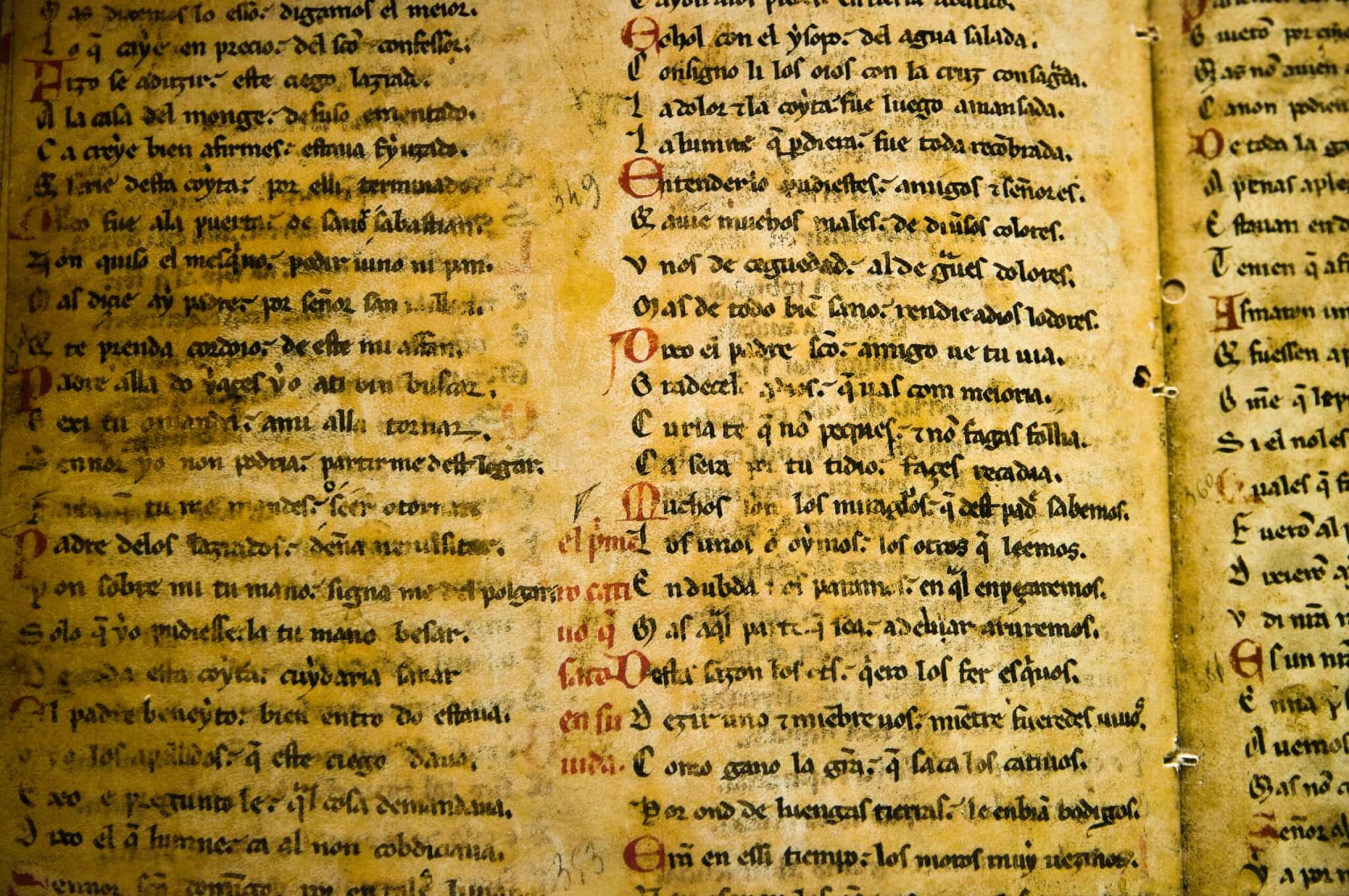Why We Don’t Read Poetry (And Why We Should)
For many there's no payoff in reading poetry. It's not worth the toil. But that's precisely the point of poetry.

Most people don’t enjoy poetry. In my Ancient to Medieval Literature class, my students celebrate when they get to the last book of the semester, an anthology of Arthurian legends, because it’s the first prose reading of the year. But it’s not just students who don’t enjoy poetry—few adults find themselves craving an evening with Shelley or Tennyson, much less Homer or Virgil. Most people complain that poetry is too difficult to understand or not accessible enough. But I think it’s deeper than that. And, ironically, I believe the poem “God’s Grandeur” by Gerard Manley Hopkins explains what the real reasons are.
The world is charged with the grandeur of God.
It will flame out, like shining from shook foil;
It gathers to a greatness, like the ooze of oil
Crushed. Why do men then now not reck his rod?
Generations have trod, have trod, have trod;
And all is seared with trade; Bleared, smeared with toil;
And wears man’s smudge and shares man’s smell: the soil
Is bare now, nor can foot feel, being shod.
And for all this, nature is never spent;
There lives the dearest freshness deep down things;
And though the last lights off the black West went
Oh, morning, at the brown brink eastward, springs —
Because the Holy Ghost over the bent
World broods with warm breast and with ah! bright wings
The beauty of Hopkins’ poetry comes in both his philosophy and his form, which are married. Hopkins held to a peculiar and profound conviction called inscape, the belief that when a created thing is doing that thing for which he was created, when he is being most himself, he embodies within himself God’s glory at its most pure, a glory brighter than ten thousand suns. As the poet states, “The world is charged with the grandeur of God.” There truly lives the “dearest freshness deep down things,” for in the depth of the created thing’s heart-–the mastery of the windhover, the justice of the just man, the flowering of the lily-–resides the heart of Christ Himself: “for Christ plays in ten thousand places.” And in Hopkins unique poetic meter, called sprung rhythm, he tried to embody this very thing: the life and energy of the beauty and glory of Christ within the form itself. The form, the words, and the meaning all complementing and communicating themselves as they communicate Christ.
if we made ourselves pause from being “productive” and look up from our silly schemes, we might see the warm breast and bright wings of the Holy Ghost hovering over us
And yet in this poem Hopkins bemoans that men have failed to see Christ in these places; they have failed to “reck his rod;” they have failed to glory and worship. They have trampled on the beauty of this world by keeping their eyes on the “practical” things and treading the ground down with the feet of a man hurrying after his petty riches. They cannot even feel the ground they have destroyed, for they have dulled their own senses by putting the shoes of success on their feet. Man has become dull, for he is caught up in himself. He no longer sees or feels. He is no longer himself.
But the glory is there all the same, and Christ continues his dance, even for the sake of one skylark or one sinner.
What was true in the 19th century is true in the 21st. We have become dull, and we are no longer ourselves. We have become so caught up in the shallow bustle of a world gone mad, seared with trade, smeared with toil, senseless in our shortsightedness, smug in our success, proud in our productivity. Our days are filled with busy, because busy is easy. To do ten things in five hours is easy; to do one thing for five hours is difficult. We have lost the capacity to dig deep down into things–to spend an hour watching the squirrel scurry through the trees, to occupy ourselves with listening to the warbler’s morning song, to spend an hour in solitude and contemplation and free thought. When we have lost the miner’s craft to dig, we have lost the eyes to see the mastery of the Master’s handiwork. We have shod our feet so that we are senseless to the soil. The Holy Spirit is hovering over the face of the deep, but we have contented ourselves in shallow waters.
This is why we don’t read poetry. For many, there’s no payoff in reading poetry. It’s confusing, enigmatic, hard work, and seems like an utter and complete waste of time. Poetry just doesn’t fit into the fast-paced, shallow, productivity-driven culture of the 21st century. It is not a toil worth troubling with; we have enough trouble as it is.
But this lack of interest in poetry is precisely why we need to read it. It is the deepest of all the literary arts because it best embodies within its form and philosophy the nature and rhythm of life itself. God speaks in the language of created things, and created things speak in the language of poetry. Poetry is at once curious and cryptic, for this is the way God’s world is.
Poetry takes work, but the work is rewarding, for as one works and wrestles with a poem-–reading it aloud, reading it silently, reading it over and over again–-the meaning and beauty emerge from it with clarity. Once we plumb the depths of a poem we realize that it has plumbed the depths of our own soul and spoken to us in groans no man can understand. And as we learn this practice in reading poetry, we learn this practice in reading life. The rocks have indeed cried out in worship, and poetry has given the world their song, for poetry is its sprung rhythm.
As a child we learned to crawl, then walk, then run. And we never stopped running. But if we are to live a life that recks God’s rod and marvels at God’s grandeur, we must learn to slow down and become a little child once again. And perhaps, if we made ourselves pause from being “productive” and look up from our silly schemes, we might see the warm breast and bright wings of the Holy Ghost hovering over us. And one sight of Him will make a man himself again.

Nathan Johnson
Nathan Carter Johnson is the Head of Program and Professor of Moral Philosophy and Trivium at New College Franklin. He previously taught Literature, History, and Writing at Greyfriars Classical Academy in Charlotte, NC










